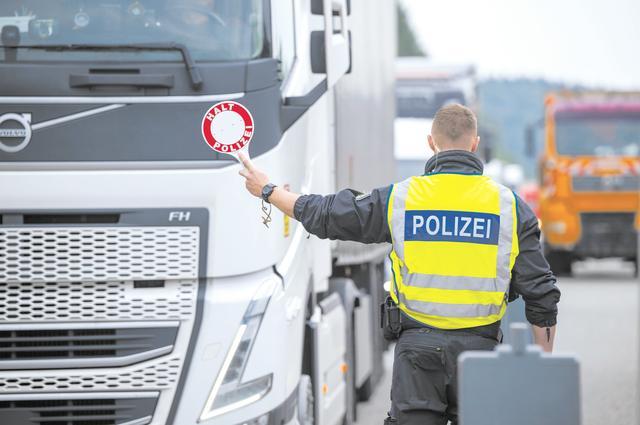
In this era of increasing globalization, the borders between countries seem to be blurring, while the bonds of cooperation are growing stronger. However, just recently, Germany announced its decision to expand border controls, which is like a shock bomb on the European continent, not only stirring the calm waters of geopolitics, but also casting a veil of embarrassment and confusion over the alliance relations within the EU.
Germany, once known for its openness and tolerance, is now building a new "Great Wall" along its borders. Of course, the "Great Wall" here is not physical, but refers to its increasingly strict border inspection and control measures. From strengthening border patrols to introducing more advanced surveillance systems, Germany seems to be interpreting the concept of "security first" with practical actions. However, this move is like the dinner table of the EU family, suddenly placed an inappropriate "hard dish", so that other member states look at each other and have mixed feelings.
Since its establishment, the EU has been committed to creating a free movement zone without internal borders, and the free movement of people, goods and services among member states is regarded as one of its core values. Germany's move is tantamount to drawing a deep rift in the heart of the EU, so that the beautiful vision of "European integration" in an instant dust. Other members of the European Union have expressed puzzlement and disappointment, and some have even bluntly pointed out that Germany's action is a betrayal of the spirit of EU unity. This "chill" stems not only from a direct reaction to Germany's policy shift, but also from deep concerns about the future development prospects of the European Union.
Germany's decision to expand border controls is not impulsive, but based on a number of factors. First, in the face of ongoing terrorist threats, strengthening border security has become a top priority for maintaining domestic stability. In recent years, a number of terrorist attacks have warned Germany and the whole of Europe that it must strengthen the screening of foreigners to prevent potential threats from infiltrating the country. Second, the aftermath of the refugee crisis has not been resolved, although the scale has slowed from its peak, but illegal immigration, economic migration and other problems are still serious, challenging Germany's social structure, the job market and even cultural identity. Finally, the ravages of the novel coronavirus epidemic have made all countries around the world realize the importance of public health security, and border control has become one of the key links to prevent and control the spread of the epidemic.
But the key question is whether Germany's move can actually solve the problem effectively. Or does it simply "shut the door" on the problem for a while, rather than seek a fundamental solution? What is more worrying is whether this "separate" border control policy will become a catalyst for the fragmentation of the EU, and then threaten the entire process of European integration?
In the face of Germany's "feat" of expanding border controls, we should keep a clear head. After all, the future of the EU hinges on the fate of every European country, and the decisions of any one member state can have a profound impact on the whole. As an important member of the EU, Germany's actions should also reflect the consideration and respect for the overall interests of the EU.
On the whole, Germany's decision to expand border controls has undoubtedly caused waves within the European Union. In today's globalized world, no country can remain immune. Only by strengthening cooperation and jointly addressing challenges can we achieve true security and prosperity. For the EU, this is an important opportunity to re-examine its own mechanisms and strengthen internal coordination and cooperation.

Driven by the Trump administration's push to relax financial regulations and the recovery of investment banking business, the market value of the six major banks in the United States has cumulatively increased by approximately 600 billion US dollars by 2025.
Driven by the Trump administration's push to relax financia…
On Christmas evening, U.S. President Trump posted on social…
According to multiple foreign media reports, the recent fin…
The middle class, once regarded as the cornerstone of Ameri…
On December 19th local time, the US military launched a lar…
The Boxing Day sunshine should have cast a false glow of pr…